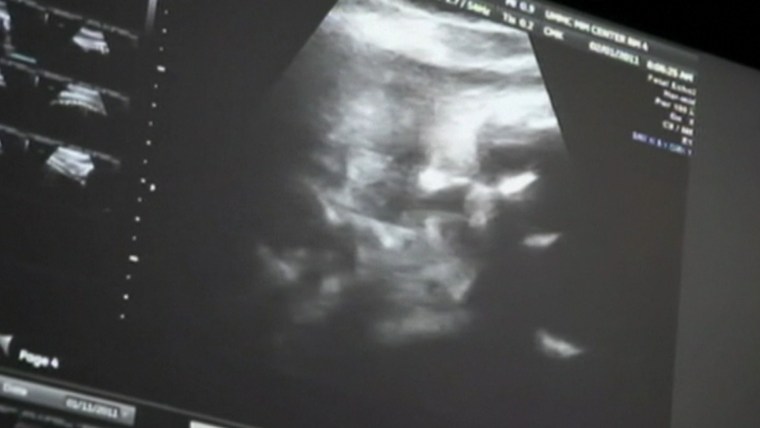What to Say to a Mother Who Lost Her Child
What do you say to a mom or dad who has suffered the ultimate heartbreak?
As a mental health professional and twice-bereaved parent, Dr. Gordon Livingston knows the issue all too well. The Columbia, Maryland, psychiatrist lost his 23-year-old son Andrew to suicide in the early '90s. Just over a year later, his 6-year-old son Lucas died from leukemia.
Livingston watched as friends and acquaintances struggled to address him. When faced with such deep sorrow, people will often blurt out well-meaning but awkward, insensitive phrases like "He's in a better place," "Everything happens for a reason," or "You're lucky to have other children," he said.
"No one knows how to react. There's nothing they can do so they come up with these meaningless platitudes… that are either dishonest or carry with them no consolation whatever," Livingston told TODAY Parents.

"People are extremely uncomfortable and you find people avoiding you in grocery stores. It's as if [the bereaved parents] were carrying with them some contagious disease."
Livingston and Deb Kulkkula, who founded July's Bereaved Parents Awareness Month in honor of families trying to cope after the death of a child, suggested these four things to say or do for a grieving parent:
1. "Do you want to talk?"
Don't shy away and don't keep your distance.
"What works is your presence. There's no set of words that will work each time, but being there for someone in a supportive way is what provides the most consolation," Livingston said.
Bereaved parents need to be able to talk, so look for ways to open up the conversation and give the mom or dad a chance to speak, said Kulkkula, who lost two adult sons. Check on parents regularly so that if they want to talk, they can.
2. "I remember the time when..."
Don't avoid mentioning the child who has passed away, Livingston said. In fact, the silence of people not mentioning her late son's name can be "deafening," a St. Louis mom wrote in a powerful essay for Bereaved Parents of the USA. Like many parents who have lost a child, she craved hearing his name and stories about him.
Kulkkula and her husband loved it when people shared anecdotes about their late son.
"With most people, it's their own discomfort that stops them from talking about it with the family. So unless a parent tells you, 'I can't talk about him or her now,' please talk about their children," she said.

3. "I gave to his memorial fund"
Bereaved parents are often afraid their children will be forgotten, Livingston said. One of his friends set up a memorial fund for Lucas and each year on the anniversary of the boy's death, there's a contribution.
"That sense of continuing and remembrance goes a long way," he noted.
Kulkkula found it comforting when her church started a scholarship fund in memory of her late son.
4. "I mowed the lawn"
An open-ended offer — such as "I'll do anything, just let me know" — likely won't work because the bereaved person won't want to ask for help, Kulkkula said, or might not even know what they need. Rather, make it more specific, such as "I'm bringing you a meal tonight, I'll be there at 6 o'clock."
Livingston is still appreciative that after his youngest son died, somebody just showed up and mowed his lawn.
And the one phrase never to say: "I know how you feel"
This is the No. 1 phrase to avoid when consoling a grieving mom or dad.
"It's not permitted to say that to a bereaved parent unless you are a bereaved parent," Livingston said. "It betrays such a lack of understanding of what the bereaved parent is going through."
People are sometimes tempted to list their own periods of grief — the death of their grandmother or a beloved family pet — as a way to sympathize, but those are not equivalent losses, he noted.
"To try to explain to people that this is the kind of loss that transforms you into a different person, that you will never be the same person you were before this happened, is almost impossible."
Follow A. Pawlowski on Facebook, Instagram and Twitter.
This story was originally published in July 2015.
What to Say to a Mother Who Lost Her Child
Source: https://www.today.com/parents/child-loss-what-you-should-should-not-say-parents-t30596